The Chief of the General Staff was the Inspecting Officer as 432 newly selected Gurkhas were on parade, for the first time after only a few days of drill training.
According to a British Army news release, the young Gurkhas had only found out last week that they were successful in joining the British Army, following several area-based selection events across Nepal.
“This year over 12,000 applicants applied from across Nepal to become a Gurkha in the British Army, many from remote villages. Also in attendance as principal guests were; H.E. British Ambassador to Nepal, a Major General from the Nepalese Army, the Nepalese Armed Police Force Inspector General, Dignitaries, British Gurkha staff, and over 1700 family members and friends of the new Gurkhas. All of these came together to wish the new recruits all the best at the start of their exciting new journey.
During the parade the new recruits stepped forward and took the oath of allegiance to Her Majesty The Queen by saluting her image and touching a table where her photograph stands, whilst senior Army Officers, including the Chief of the General Staff, represented her behind the table and acknowledged the act by each of the new Gurkhas. In his speech to the parade and guests, General Sir Mark Carleton Smith thanked the young men and their families for making the choice to join the British Army. He recognised their choice was a life changing decision for both the individuals and family members”
Gurkhas and their families took time to congratulate the men and thank the families for allowing their offspring to take this chance in the British Army.
This was also a sad time for many as they will likely not see each other for nine months whilst the new recruits undergo training in Catterick, according to the news release.
This increased quantity of selected Gurkhas for the Intake 2020 is part of a wider Army plan to grow the number of Gurkhas and Gurkha units across the British Army.




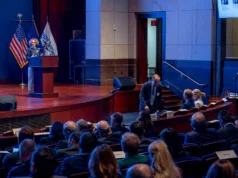

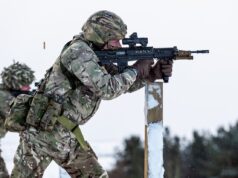
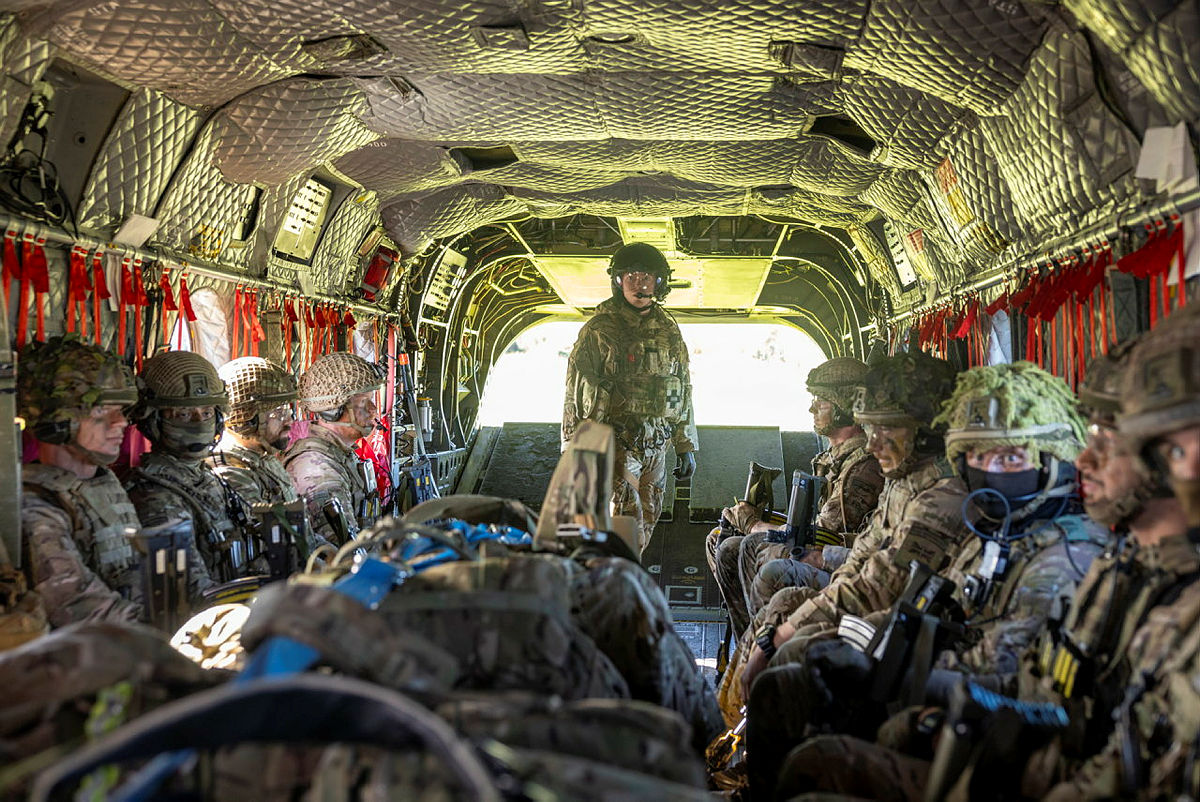
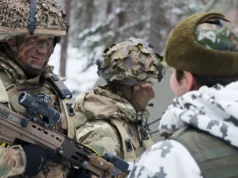
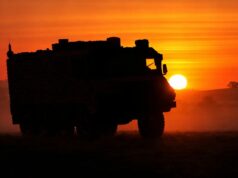
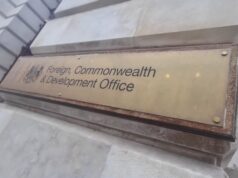
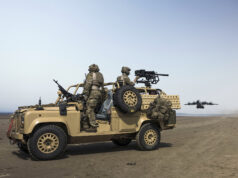


They are a fine regiment and have done a sterling job in the past. However, ever since Joanna Lumley stuck her two penn’orth into discussions about pensions and right to live in the UK these troops look similar in value to regular UK troops…This is why I hate poorly educated celebrities getting involve in discussions they know nothing about.
They are beloved by the public. That is how they got that rise in pensions a salary, public pressure. Any government that tried to disband them would create an outcry.
Good Morning Peter. I think you have been a little harsh labelling Joanna Lumley as a ‘poorly educated celebrity’. She was born in the North of India-Kashmir, as was her father. He was an officer in a Gurkha Regiment so I would think that the well educated Joanna had strong links and access to good first hand information regarding these fine soldiers-certainly enough for her to assume a role in their welfare!
regards
where I used to live, many of the local bus services were driven by de-mobbed Gurkha soldiers. they were an absolute pleasure to have and very helpful to the elderly etc. Of course they deserve their benefits when they have served (somebody elses country!)
Indeed and despite the mixed history of the British Empire there remain close bonds with many Commonwealth countries apart from the traditional old “White” dominions. I am thinking in particular of parts of the Indian sub-continent and places such as Fiji and Papua New Guinea so we must have done something right
And your point being? The army is struggling to recruit and yet we get 432 new soldiers out of the deal. They will potentially be putting their lives at risk for a foreign country, and so why on earth should they not get the reward that anyone else does for the same job.
Yes they can retire back home (Thailand being a popular one, but also spain, south of France , etc etc) but just how many Brits retire abroad, are you asking for their pension to be cut because they have chosen a cheaper or warmer country to retire. What about the people that retire in cheaper parts of the UK, should they get a cut to compensate?
There are plenty of ways the army could save cash, such as sorting their terrible procurement process etc etc, but this is not it.
I’ll be blunt and rude. Shut Up. These men know what they are doing.
Why shouldn’t they get everything else that British soldiers get when they leave the army?
The Gurkhas are one of our most elite, invaluable units. Their loyalty to this country is awe inspiring and they put their lives on the line for this country. They deserve the same pensions as British-born soldiers.
They fight, bleed and sometimes die for this country – in my book they bloody well earn the right to live in the UK after they leave. I believe that anyone – Gurkha, Fijian, Jamaican, Canadian etc – who serves in our armed forces for 5 or more years should automatically get a British passport.
Very welcome they are too.
Heard some “interesting” stories about these guys recently. Let’s just say some in the army are not enthusiastic about working with them.
Why would that be? Gurkhas have been part of the British Army for 150 yrs, they are hardly new. I’ve heard many very positive reports of their service over the years. What’s changed?
It could just be individuals I guess but a severe case of “Jack” when mixed in numbers into units amongst other things. I’ll leave the rest out lest I get anyone into trouble as it’s pretty unit specific.
I understand the term. The Gurkha infantry operate as complete battalions – I know they have signals and other arms. The British Army has recruited from many sources for a while now – the West Indies and Pacific Islanders are well known. My nephew who is in cavalry phase 2 training, shares with a Camerooni recruit – which was a surprise to me! As far as I know, Gurkhas have the reputation as fearless, brave, committed and energetic soldiers. Let’s say my nephew is still discovering his political persuasion…its probably not untypical amongst young the rank and file. I’m not sure I’d call a Gurkha “Jack”, not with those Kukri!
The way it’s been put to me is one or two Ghurkas are great, a whole section is “Jack as f***”. The army is currently mixing Ghurkas into regular units.
To be fair Steve, they have been mixed into other regular units of the Royal Signals, Engineers, and Logistic Corps for many years.
But yes, there are new units being formed to augment these.
Regards.
All that because people won’t join their own army in enough numbers
+1 Mr Martin, notorious for it and have personally been on the receiving end.
BV
Cavalry phase 2 you say? What regiment is he due to join?
BV
Household Cavalry
A fine regiment, I take it he is in Bovington now, how is he finding it?
BV
Yes he is, then soon on to Windsor for a few months and then Knightsbridge. He loves it.
The Gurkha’s have served the “Crown” for over 150 years, but have only been part of the British Army since India and Pakistan gained independence in 1947. On partition, a certain % transferred to the British Army, to man the “outposts” East of Aden, whilst the rest remained in the now “Independent” Indian Army.
yes, I was aware of the differentiation and used the term loosely
Hmmm well there’s good and bad in every group, club , unit, section, workplace, etc etc that’s just life . All I can say is my pal who was until very recent in 3 Scots RRS had nothing but good things to say about them during his 23 yr army career having crossed paths many times with them. I’ve nothing but respect for them.
You’re probably right there. Possibly miserable at being lumped in with a none ghurka unit too, I would be.
Provide links to back up your claim or please refrain from posting unsubstantiated rumors.
Can’t provide links to what I don’t have. This is from conversations I’ve had. It’s not meant to bismirch anyone’s honour, merely to inform from a different perspective.
Chill out.
codes and whispers don’t come across well in writing unless all the people reading know what you’re on about. so what is jack
Army slang is hardly codes and whispers.
Here’s a quick few phrases:
https://www.forces.net/military-life/fun/british-military-slang-or-phrases-you-need-know
Jack is lazy btw.
Years ago my friend Stewie, who was with 3 Para in the Falklands, recounted that the Argentines were so terrified of the Gurkha’s – “dexterity”- (that’s a good way of putting it) with their kukris in hand to hand combat that they would often desert their positions upon the mere rumor of facing a Gurkha assault.
Cheers.
I don’t blame the poorly trained, low moral and ill equipped Argentine conscripts.
poorly trained maybe. but i remember piles of equipment on an airfield when it was over they were still getting supplies through
I’m not sure the Gurkhas actually fought at the front as they advanced – that was the marines, paras and guards (Scots.) I think the Gurkhas were almost theatre reserve infantry battalions, they came down behind the others and backfilled but yes, I think the fearsome reputation scared the Argies
You are correct Julian and they were apparently very sad not to have blooded their Kukris!
I may be wrong but I seem to remember hearing tales of Gurkha units being fed Drugs ( I forget what substance) before attacking Argentinian positions to make them even more aggressive causing the Argys to flee in terror . I definitely read that somewhere ,whether there is any truth in it I don’t know? . This kind of malarkey occurred and is documented for sure in WW2 with the Wehrmacht so entirely possible I suppose
Haha! Apparently the Zulus at Isandlwana were also high on Cannabis when they overwhelmed Chelmsfords column and of course the use of drugs by American troops in Vietnam is well documented. Coping with the horrors of war!!
btw I was lucky enough to go on a tour to the slopes of Isandlwana with the late great David Rattray to hear his recounting of the Battle. A chilling experience known t have brought tears t the eyes of some grown men..!!
Gurkhas ,are respected all over the world, I met a retired Gurkha , working in Ontario Canada back in the 1980s a job of distinction with the Ontario Government , we had many great discussions, his name was George the same as me. I really like them. They scared the bejeebers out of the Argies during the Falkland war.